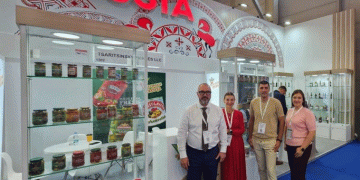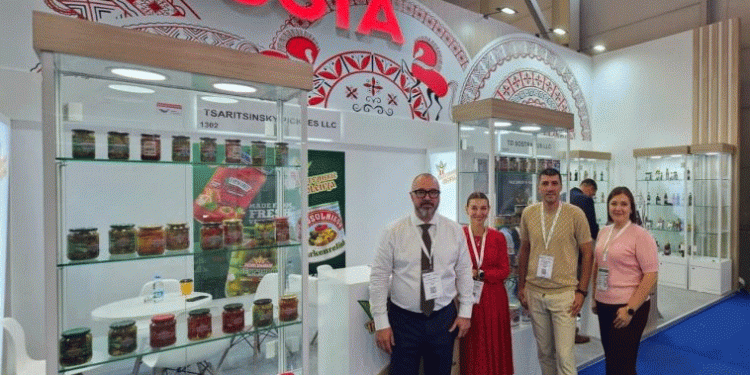The global market for processed and preserved vegetables continues to offer significant growth opportunities for agile producers. A prime example is the Volzhsky-based company “Tsaritsynskie Solenya,” which has successfully leveraged international exhibition platforms to secure new export channels. After its participation in the prestigious World Food Istanbul 2025 exhibition, the company announced plans to begin exports of its pickled cucumbers, tomatoes, and cabbage to Turkey, with a strategic eye on the broader Gulf market through halal certification.
The company’s participation was part of a coordinated national effort. The “Made in Russia” pavilion, supported by the Russian Export Center (REC), brought together over 30 producers from 16 regions, facilitating more than 300 business meetings. This underscores the critical role government-backed trade missions play in connecting small and medium-sized agri-businesses with international buyers. For “Tsaritsynskie Solenya,” the exhibition was a direct gateway to expanding its client base and establishing firm business relationships with Turkish importers.
The company’s product line, which features pickled vegetables made with natural spices and herbs, tomato sauces, and fruit jams, aligns with growing consumer trends. The global pickled vegetables market, valued at over $10 billion in 2024, is projected to grow steadily, driven by demand for convenience foods, authentic flavors, and plant-based options. The strategic decision to pursue halal certification is particularly astute. The halal food market is not solely defined by religious compliance; it is increasingly associated with quality, safety, and ethical production. With a value exceeding $2 trillion globally, obtaining this certification opens access to the lucrative and fast-growing consumer markets of the Middle East and Southeast Asia.
This move represents a microcosm of a larger trend: the internationalization of regional food producers. By moving beyond domestic sales, companies can diversify their revenue streams, increase brand prestige, and build resilience against local market fluctuations.
The expansion of “Tsaritsynskie Solenya” into Turkey is a case study in modern agricultural export strategy. It demonstrates the powerful synergy between a quality-driven producer offering a diverse, natural product range and the logistical and promotional support of national export institutions. For other farmers, processors, and agricultural engineers, this success story highlights the tangible benefits of engaging with international trade shows and understanding evolving global consumer preferences, such as the demand for halal products. It proves that even specialty sectors like pickled vegetables have a substantial place in the global trade of agricultural value-added products.































